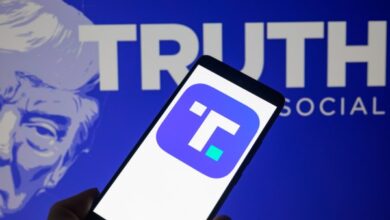Was HPE’s $14B Juniper acquisition a clever transfer?

[ad_1]
When HPE introduced its intention to acquire Juniper Networks for $14 billion in chilly, laborious money earlier this month, it was a little bit of a shock. Certain, HP had already bought Aruba in 2015 for round $3 billion. Grabbing one other networking firm would presumably simply add one other layer to that enterprise. After all, there are all the time problems incorporating one massive group into one other, and HP doesn’t precisely have one of the best file for being a smooth operator the place that’s involved through the years.
However surprisingly, the businesses didn’t place this aware coupling as a pure networking play. The truth is, in a weblog put up announcing the deal, Juniper CEO Rami Rahim instructed it was extra about AI. “This mixture with HPE is anticipated to allow us to ship extra complete, extra aggressive, actually end-to-end experience-first AI-native options,” he wrote.
No matter the way you place it, the deal, which pays $40 a share, or a 32% premium over the closing worth on January 8 (per CNBC), represented the type of supply that was laborious for Juniper to refuse. Assuming regulators don’t object — not precisely a given nowadays — this deal may shut later this yr or early subsequent. They’re giving plenty of wiggle room for regulatory oversight.
Because the deal was introduced on January 12, HPE traders appear lukewarm about it; that’s, if the inventory worth is any indication of their sentiment. Think about that on January 8, the day the WSJ broke the news {that a} deal between the 2 firms was imminent, the inventory worth sat at $17.72 a share. By January 12, when the deal was formally introduced, the value was right down to $15.89, and it has been wallowing there ever since, closing Thursday at $15.92, down virtually 8% for the month. That’s not precisely a ringing endorsement.
With a few weeks within the rearview to digest this deal, we determined to take a look at simply what this was about, and whether or not traders ought to perhaps be somewhat extra optimistic about it. As you’ll see, the businesses assume the numbers look fairly good, and so they actually do match up effectively (as long as HPE doesn’t mess it up).
Is it actually about AI?
It’s laborious to search out something nowadays in tech that isn’t being positioned with an AI focus, so it shouldn’t come as a shock that the businesses are making AI the centerpiece of this deal. However is that basically correct?
[ad_2]
Source link




